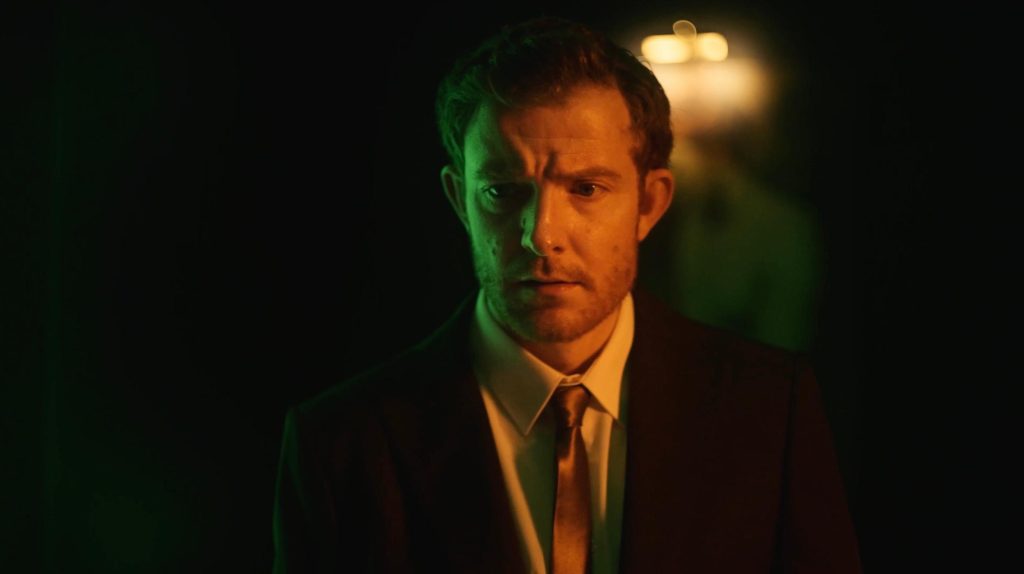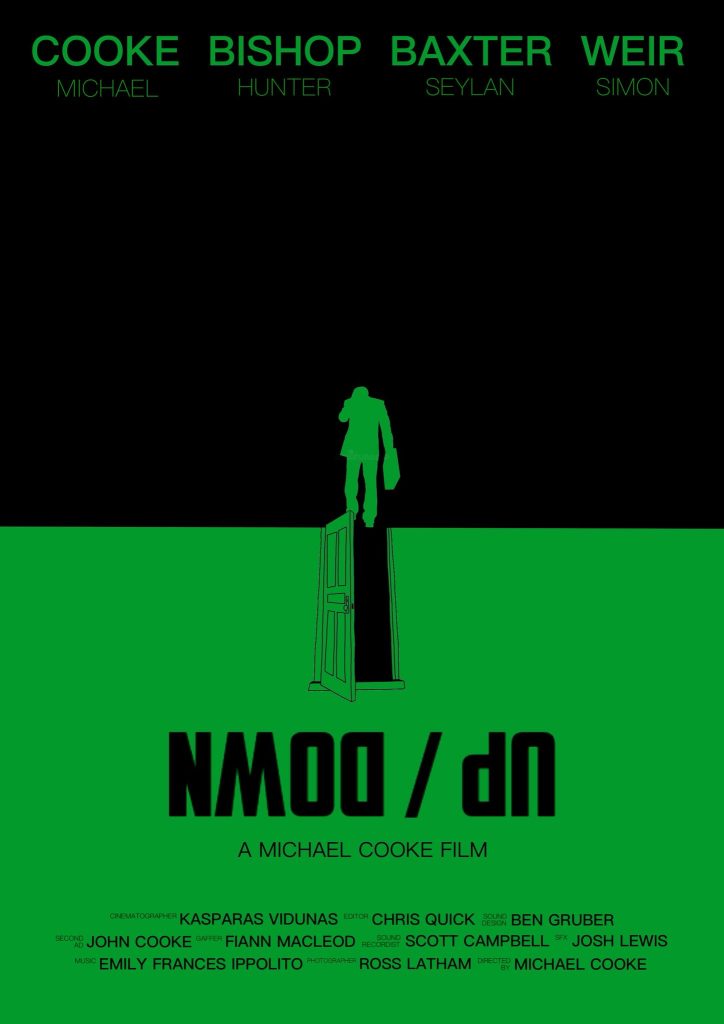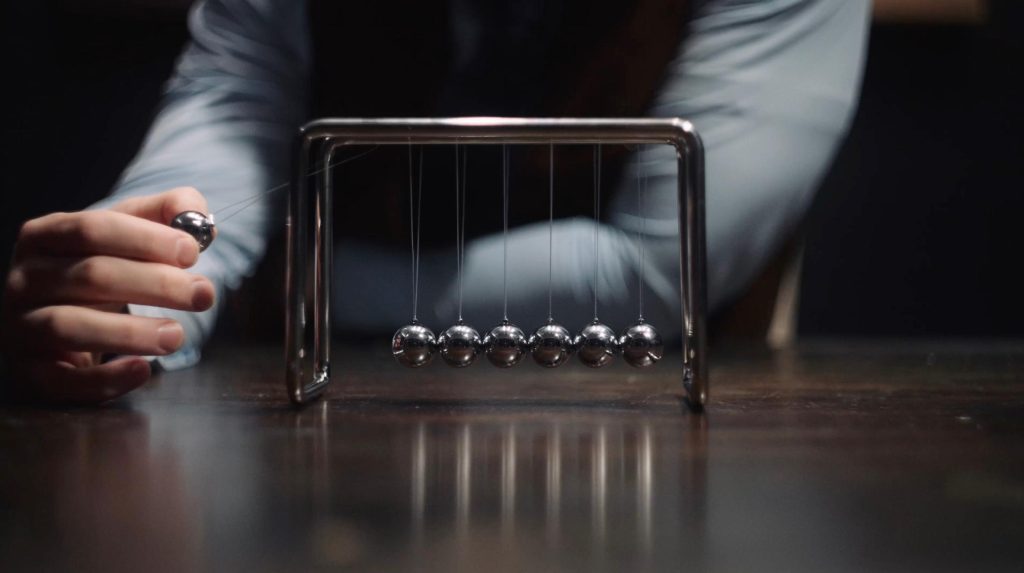A man finds himself waiting for a decision to be made. Will he be going to heaven or will he be heading to hell? We check out Michael Cooke’s short film Up/Down.

Michael Cooke’s short film Up/Down offers a contemplative, atmospheric take on one of humanity’s most enduring existential questions: what happens after we die? Running just ten minutes long, the film delves into the space between life and death, drawing inspiration from age-old concepts of judgment, morality, and redemption. With strong performances, a minimalist yet imaginative script, and striking visual storytelling, Up/Down proves that short-form cinema can pack a powerful philosophical punch.
The film begins with a man—John Karlston, played by Cooke himself—waking in an unfamiliar building. Dressed in a crisp suit and utterly disoriented, John has no memory of how he arrived there or even how he came to be in formal attire. From the outset, there’s a sense of quiet unease that mirrors his own uncertainty, and that disquiet steadily grows as he encounters a stern, no-nonsense receptionist. When asked for his name, John draws a blank, forcing the woman behind the desk to scan his hand for identification. He’s then instructed to wait in a nearby room, where two other men, including a priest, are already seated.

It becomes apparent that this surreal facility serves one purpose: to determine whether the souls of the recently deceased ascend to heaven or descend into hell. While the setting is sparse, its symbolism is dense. The space exists outside time, beyond memory, and within the moral gray area where identity and consequence intersect. As John waits for his fate to be decided, we, too, are suspended in this limbo alongside him.
The climax arrives when John is called into the final room for judgment. There, he meets an unexpectedly cheerful angel, portrayed by Hunter Bishop, whose lighthearted demeanor provides a stark contrast to the gravity of the situation. The angel presents John with a video of his life—a reel of moments, some forgotten, others perhaps suppressed. Though the film doesn’t reveal the full contents of the footage, John’s reaction is telling. He claims no memory of the actions he has just seen, raising questions not only about guilt and accountability, but also about memory, denial, and the true nature of moral worth. Has John committed an act so terrible that it warrants eternal punishment, or is he, like most of us, simply flawed—capable of both good and bad?
What stands out most in Up/Down is its refusal to offer easy answers. The film wisely avoids explicit moralizing and instead invites viewers to wrestle with the same uncertainty its protagonist feels. The narrative unfolds slowly, across just three scenes, but the pacing serves the story well. The deliberate structure heightens the suspense and mirrors John’s psychological state—hesitant, confused, and anxious.
From a technical standpoint, Up/Down is remarkably well-crafted for an independent short. The cinematography is polished and purposeful, utilizing strong red and green lighting that heightens tension and evokes the classic imagery of infernal and celestial realms. These harsh, saturated colors don’t just set the mood; they subtly reinforce the film’s core theme—judgment—and the emotional weight it carries.

Sound design is another strong suit. The dialogue is crisp and clearly recorded, and the score is minimal yet effective, underscoring the film’s atmosphere without overwhelming it. The visual and auditory elements work in harmony to immerse the viewer in the strange, transitional world John finds himself trapped within.
Up/Down ultimately succeeds not just as a compelling narrative, but as a broader reflection on morality and the unknown. Much like the ghosts of A Christmas Carol, the film serves as a gentle warning—an invitation to reflect on one’s actions before it’s too late. It suggests that perhaps we all carry moments we’ve buried, decisions we’d rather forget, or regrets we haven’t come to terms with. And when the final door opens, will we be ready? If you believe in that kind of thing, of course.
In just ten minutes, Up/Down raises profound questions and lingers long after the screen fades to black. It’s a strong example of short-form filmmaking that manages to be introspective, entertaining, and emotionally resonant all at once.
Leave a Reply